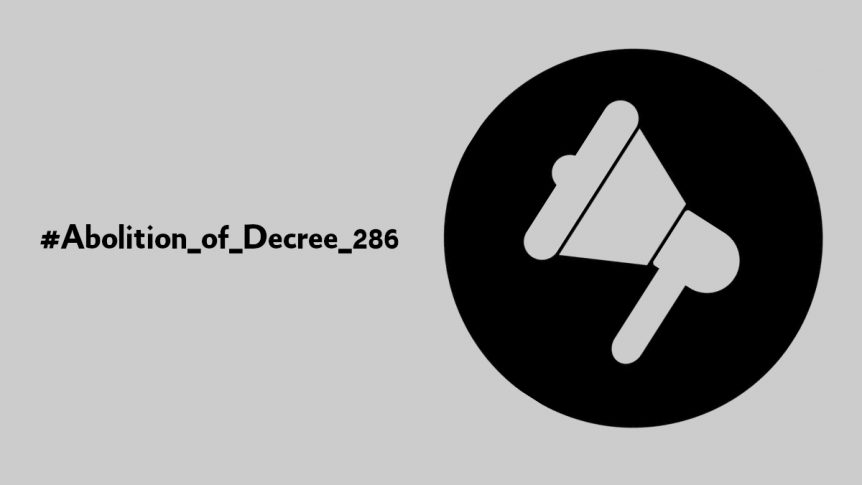On 4 October 2021, the second Administrative Judicial Section of the Tripoli Administrative Court, for the second time, postponed its decision, to the 18th of October 2021, on complaint n° 293/2021, submitted in August 2021 by Adala for All (AFA), a collective of Libyan lawyers, on behalf of the Libya Platform coalition. The complaint, to which the Cairo Institute for Human Rights Studies (CIHRS) contributed, seeks recognition of the illegality of Decree 286 regulating civil society, issued by the Presidential Council of the Government of National Accord (GNA) in March 2019, and its revocation.
CIHRS fully supports AFA and the Libya Platform in this courageous initiative. This administrative complaint against the legality of Decree 286 represents a strong step toward attaining the revocation of this draconian decree.
The complaint contends that Decree 286 violates Article 15 of the 2011 Constitutional Declaration, which states that freedom of association should be regulated by legislative authorities. Executive authorities are not competent to issue civil society regulations on their own; they can only issue decisions and regulations concerning the application of laws issued by the legislature. Decree 286 therefore represents a usurpation of power. Furthermore, the decree suppresses the right of civil society to exist and operate freely granted by Article 22 of the International Covenant on Civil and Political Rights (ICCPR), which Libya is obligated to abide to as a state party to the ICCPR.
CIHRS urges the Tripoli Administrative Court to uphold the rule of law, the Constitutional Declaration and respect Libya’s international obligations. We reiterate our call for Libyan executive and legislative authorities to ensure that the legal framework and regulations on freedom of association abide by Libya’s national and international obligations, especially Article 15 and 17 of the Constitutional Declaration and Article 22 of the ICCPR.
Maintaining the restrictions included in Decree 286 threatens the existence of free and independent organisations that have a significant monitoring role to play ahead of scheduled elections in addition to their critical role in transitional justice and national reconciliation efforts.
Share this Post

